BUSCH GENUINE OILS AND LUBRICANTS
Rely on Busch genuine oils and lubricants for your vacuum pumps, blowers and compressors.
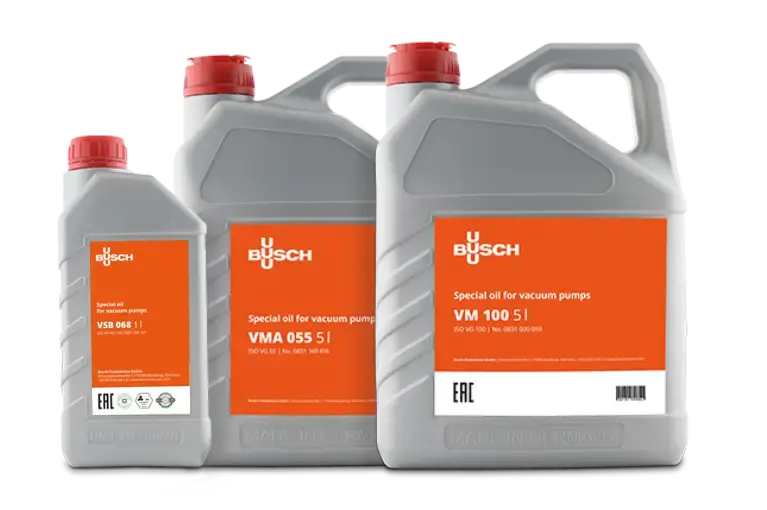
Oil is essential. For vacuum generation in oil-lubricated rotary vane vacuum pumps. The role of oil is twofold: A smooth rotation cycle, allowing the vanes to slide out freely. And an efficient sealing of the compression chamber.
However, during operation, the vacuum pump oil is exposed to various sources of contamination. So that it loses its viscosity over time. Together with all its beneficial characteristics.
Running a vacuum pump with degraded inferior oil will reduce its performance and shorten its lifecycle. A regular oil change and the use of high-quality oils ensure your vacuum pump is performing at its optimum and continues to meet your process requirements.
A sophisticated and perfectly balanced formula is therefore the secret to maintaining the initial viscosity and lubrication properties for as long as possible. Even dry vacuum pumps, blowers and compressors do need oil for their gear boxes in order to prevent premature wear and to ensure smooth operation with low noise and vibration levels.
There are many lubricants. But only Busch original lubricants ensure the ideal match for your Busch vacuum pump, blower or compressor. And your application.
WHY BUSCH GENUINE VACUUM PUMP OILS?
Get the best performance
Busch genuine oils and lubricants are the result of decades of experience. In all areas of vacuum generation. They have been specially developed to achieve the optimum performance in terms of cycle times and ultimate pressure. No matter what vacuum pump, blower and compressor you are using.
Extend the lifetime of your vacuum pump
Only Busch genuine oils and lubricants ensure a very high uptime. With stable performance over time. We have tested them under the harshest conditions. With thousands of customers. Good lubricity reduces friction, increases the efficiency and allows for extended change intervals.
Avoid risk of “equivalent” oils
Vacuum pump oils that are advertised as "equivalent" to Busch genuine oils and lubricants often do not deliver the desired performance. There is no guarantee that quality or performance tests have been conducted according to Busch standards. Do not take any risk. Order your replacement oils directly from Busch.
Synthetic Food-Grade Oils for Food Applications
Optimum performance. For the food industry.
Strict hygiene and safety regulations apply to the food industry, such as EC Directive 93/43 EEC and the FDA 21 CFR / HACCP concept. All synthetic food-grade oils from Busch are H1-certified, the highest standard for oils with occasional direct food contact.Synthetic Oils and Lubricants
Optimum performance. For demanding processes.
Synthetic oils and lubricants are suitable for demanding applications with increased process loads (e.g. acids, chemicals) and higher operating temperatures. Due to their higher resistance, they have an up to four times longer service life than conventional mineral oils, depending on the application.Special PFPE Lubricants
Chemically inert. For demanding applications.
If extreme heat, aggressive chemicals, solvents, reactive gases or similar cause problems in your process, Busch PFPE lubricants are the solution for you. Especially in oxygen-rich applications, with an oxygen content of more than 21%, or with corrosive chemicals. Our PFPE lubricants are completely inert and have a long service life. Even under extreme operating conditions. In case of contamination, these lubricants can be professionally filtered or reprocessed. This means they can be reused several times before a new filling is required.FAQ
What is the role of the oil in a vacuum pump?
Oil is essential for vacuum generation in oil-lubricated rotary vane vacuum pumps. It has many functions: Lubrication to reduce friction and prevent abrasion, sealing to close tiny mechanical gaps and subsequently increase tightness and ensure maximum compression efficiency, cooling to store the heat from movement of moving parts, process and compression and transport it to the separator and release heat into the environment to cool the pump additionally. Even dry vacuum pumps, blowers and compressors do need oil for their gear boxes in order to prevent premature wear and to ensure smooth operation with low noise and vibration levels.
Can I use generic oils and lubricants in my Busch vacuum pump?
The choice of the right lubricant has a great influence on the operating costs and the performance of a vacuum pump, especially with regard to pumping speed and ultimate pressure. There are many lubricants. But only Busch genuine oils and lubricants ensure the perfect match for your Busch vacuum pump thanks to our many years of experience with vacuum applications. Since generic oils have not been specially developed for our products, the optimum performance and lifetime of the vacuum pump cannot be guaranteed.
Is it safe to use “equivalent” oils in my Busch vacuum pump?
Busch original oils and lubricants for vacuum pumps and blowers have been developed and tested to the highest quality standards. Of course, they meet all relevant international standards such as CLP (EN 1272/2008) and REACH (EN 1907/2006). This ensures safe and reliable operation. If the vacuum pump however has not been operated with the correct lubricant but with an equivalent oil, there is no warranty in the event of damage.
Does the application play a role for the oil choice or just the vacuum pump model?
In order to provide the optimum lubrication properties for the respective vacuum pump in the production process, the oil has to be optimally adapted to the application and a variety of specific environmental influences. Oils age faster due to temperature exposure, process contamination (chemicals, acids, dusts, aerosols), mechanical abrasion, etc. As a result, they lose their lubrication properties. Therefore, the formula of the oil has to be optimally adapted to these parameters. Busch offers a wide range of different oils so that you can always make the perfect choice.
What is the difference between mineral and synthetic vacuum pump oils and lubricants?
Mineral oils cover basic industrial applications such as the pumping of air and noble gases as well as small amounts of water vapor. They are suitable for low to moderate operating temperatures. Synthetic oils have better viscosity properties than mineral oils and are therefore suitable for more demanding applications with higher process loads (e.g. acids, chemicals) and higher operating temperatures. Due to their higher resistance, synthetic oils have an up to four times longer lifetime than conventional mineral oils, depending on the application.
Are there any special vacuum pump oil requirements for food applications?
The relevant standards for hygiene in the food industry are EC Directive 93/43 EEC and FDA 21 CFR in conjunction with the HACCP concept (Hazard Analysis Critical Control Point). All synthetic food-grade oils from Busch are H1 certified, the highest standard for oils with occasional direct food contact.
How often do I have to change the oil in my vacuum pump?
This depends on the application (process contamination), the operating mode, the condition of the machine and the ambient conditions. In the instruction manual of the respective vacuum pump you will find a general recommendation. Although oil can be stored for a very long time (up to four years) under ideal conditions (hermetically sealed, stable temperature around 20°C, no direct sunlight), it degrades more quickly when used in a vacuum pump, even when it is not in operation. For optimum performance and lifetime of your vacuum pump and its components, we therefore recommend at least two oil changes per year.
How do I know when my vacuum pump oil needs to be changed?
Following the recommendations in the instruction manual of the vacuum pumps is a good indication. A clear sign of worn oil is when it thickens, i.e. the original viscosity increases. Ideally, the oil should be changed before it becomes too thick. A widespread misconception is that color is the ultimate sign of worn oil. In general, however, a change in color is not unusual and is not immediately a sign of lower quality or worn oil. UV light in particular causes oil to change its original color significantly. It may be a sign that oil is burned when exposed to temperatures outside the intended temperature range, or that it reacts aggressively to contamination, but it is very difficult for the eye to see. A change in the behavior of the vacuum pump could also be an indication of worn oil: changes in ultimate pressure, decreasing pumping speed/pump-down time or increase in noise or vibration levels.
What happens if I do not change my vacuum pump oil regularly?
At first, the performance of your vacuum pump gradually suffers: worse ultimate pressure, longer pump-down times, higher noise and vibration levels. In addition, abrasion and wear will increase while the corrosion protection of metal parts decreases. If the oil decomposes too much and the viscosity increases in combination with low temperatures, this can lead to starting problems, as the oil can no longer flow through the pipe cross section due to its thickness. If the motor still has enough power to start and the couplings can still bear the load, the power consumption will yet increase.
How can I identify genuine Busch vacuum pump oils and lubricants?
If you buy your oils and lubricants from a Busch sales company in your country or from a licensed distributor, you can be sure that you are getting an original product. Make sure that the tamper-evident closure and seal are intact. In addition, Busch original oils have a batch tracking code and number. If this is missing on the label, it may not be an original Busch product. If you find a batch tracking code and number on your product and you are still not sure, forward the batch number to us for verification.
How do I change the oil of my vacuum pump?
Please refer to the relevant instruction manual of your vacuum pump with detailed step-by-step instructions. The instruction manual can be downloaded from the respective product pages on our website.
Who can help me to change the oil of my vacuum pumps?
Our service technicians around the globe will be glad to assist you. Simply contact you nearest Busch service center.
Does vacuum pump oil have a limited shelf life?
Busch genuine vacuum pump oils have a shelf life of up to four years from the date of production, if stored in the original containers under the recommended storage conditions:
- dry and clean storage space
- ambient temperature between 0 and 40 °C
- air humidity < 70 % r.h., avoid moisture condensation on container
- no direct sunlight (especially important for plastic containers)
- keep container hermetically sealed
- prevent foreign matter from entering the container
Can I use one type of oil for all vacuum pumps?
No, the appropriate oil depends on the vacuum pump and the application. Please refer to the respective instruction manual of your vacuum pump or contact your nearest Busch service center. Our experts will be glad to assist you in selecting the right oil or lubricant.
Can I use Busch vacuum pump oils also in third-party vacuum pumps?
Basically yes, you can also profit from the benefits of Busch genuine oils and lubricants for your third-party vacuum pumps. The oil has to be selected individually for the respective brand and application. Ideally, the third-party vacuum pump should already be outside the warranty. Since Busch does not know the exact specifications and we do not have test data on material compatibility with the installed components, we cannot give any guarantee, and suitability for use has to be determined empirically.
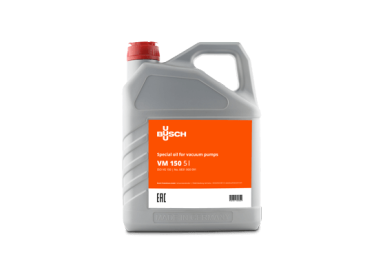
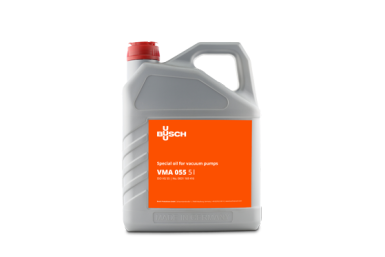
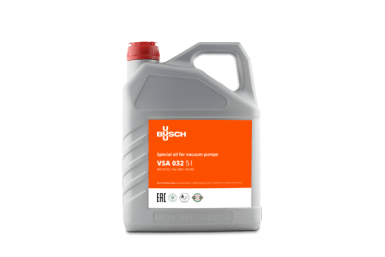
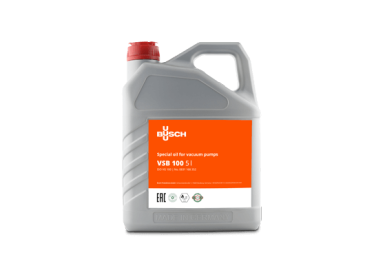
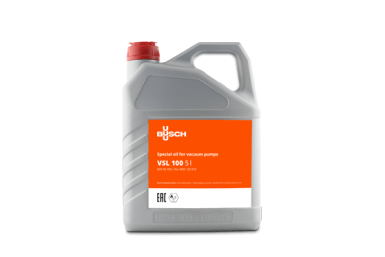
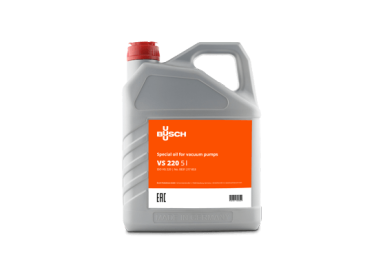
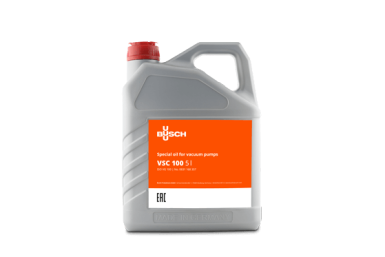
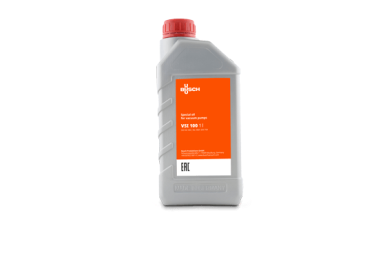
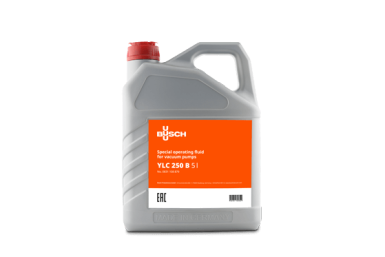
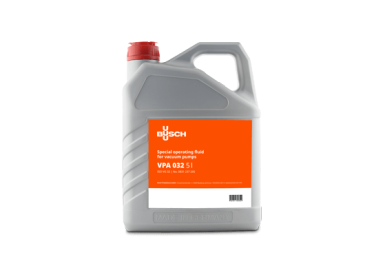
_news_article_1200x675.jpg)